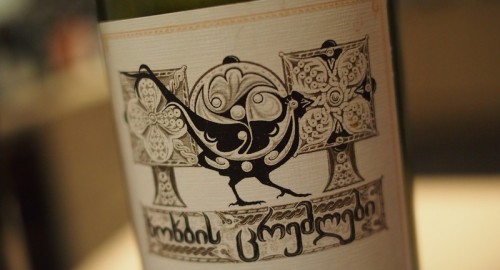
So restaurant wine lists are too trendy? Sommeliers guilty of forcing their esoteric tastes on punters? Should restaurants give their customers what they’d like, rather than what they should like?
Look: if you want the familiar and the comfortable, go to your neighbourhood bistro, or a chain, or any one of the gazillions of cheap ethnic restaurants, where you are guaranteed no nasty surprises.
Or, if you want comfortable, unimaginative eating but want to pay top dollar and have the illusion you are eating the finest, go to a large five star London hotel and eat in the restaurant there.
But the reason we go to high end restaurants is to appreciate the work of professionals at the top of their game. We want to be challenged with brave and imaginative cooking. And we expect the same of the wine list. That’s what top sommeliers are hired for. They are not being too trendy. They are doing their job.
4 Comments on So restaurant wine lists are too trendy?
He does raise a point about Organic/Biodynamic that is worth noting though. If you put all sorts of wannabe organic/biodynamic on your list and they are not, you’re not playing the sommelier game but the trendy game.
This article is about Australia’s market. From Manchester, UK “unfrotunately” we’re not about to hit this kind of issue anytime soon market
Thanks for this Jamie! I’m from (and in) Australia, and I have to say Huon Hooke’s article was really quite an oddball out-of-nowhere surprise. I can’t imagine what prompted it. Could it be that he writes for a publication that’s just entered into a commercial relationship with the biggest (supermarket-owned) liquor retailer in Australia? A liquor retailer, it must be noted, whose wine stock is roughly 95% Australian, which in turn would be 95% composed of 500,000+ case-per-year producers. Or maybe he’s annoyed that Australian drinkers are starting to go beyond his established field of expertise, i.e. domestic Shiraz/Cabernet/Chardonnay/Sauv Blanc, and actively ask for Tempranillo and Malbec in restaurants! As someone working in a relatively high-end and wine-heavy restaurant, I was fairly staggered by his proclamations on behalf of “consumers” – the vast majority of my experience with restaurant guests has been that they are excited to be guided to something they haven’t tried before, be it a grape variety, a region or simply a new Australian shiraz producer…!
Tangential to the issue raised by Nic, I don’t really think you can say anymore that people actively wanting to drink organic wine is “trendy”. People have been seriously into organic food for 25-30 years now: surely that should be considered a permanent change in the way we operate? Sure, it took a longer time to happen for wine, but that doesn’t mean it’s not also a permanent change. I honestly think that a considerable proportion of the current generation of “beginning” wine drinkers – say, early 20s – will be serious about drinking minimal-intervention wine for the rest of their lives. Whether that’s for conservation reasons, or because they’re wine geeks like me and want to taste the soil, or whether they’re simply in favour of smaller producers – I think it’s time the “wine must always be made as it was in the 1990s” crowd got a new insult rather than “trendy”.
And finally, to the point Nic actually made. There’s a big, and important, difference between (a) pointing out to your consumers those wineries that do utilise organic and/or BD practices even without being certified, as long as you use the appropriate wording, and (b) flat-out lying. Yet the original author was criticising the former as though it were the latter. That’s just disingenuous.
Claire: just how disingenuous is suggesting you “can taste the soil” in wine I wonder?! Or perhaps you’re a true Wizard of Oz?
For Me HH missed an important point: the vast majority of quality European wines are made with food in mind – it’s part of the cultural landscape within which grapegrowers / winemakers reside. I’m a big fan of Aussie wines but I would suggest that a much bigger proportion of them are appreciated outside of mealtimes, though of course plenty of them can be an accompaniment to food.